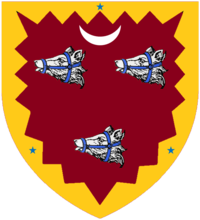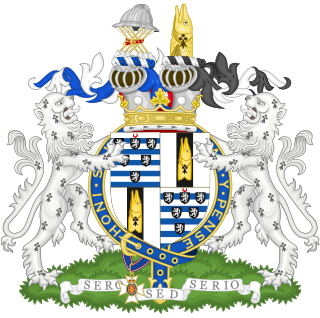
Marquess of Salisbury is a title in the Peerage of Great Britain. It was created in 1789 for the 7th Earl of Salisbury. Most of the holders of the title have been prominent in British political life over the last two centuries, particularly the 3rd Marquess, who served three times as Prime Minister in the late 19th and early 20th centuries.

Douglas Martin Hogg, 3rd Viscount Hailsham, Baron Hailsham of Kettlethorpe, is a British politician and barrister. A member of the Conservative Party, he served in John Major’s second government as Minister of Agriculture, Fisheries and Food from 1995 to 1997, and was a Member of Parliament (MP) from 1979 to 2010.
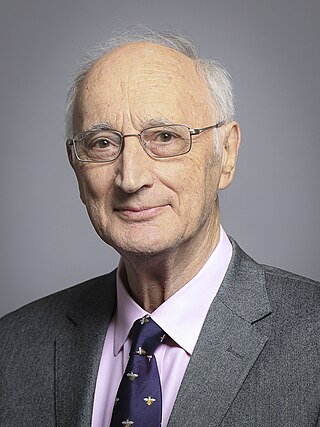
George Samuel Knatchbull Young, Baron Young of Cookham,, known as Sir George Young, 6th Baronet from 1960 to 2015, is a British Conservative Party politician who served as a Member of Parliament (MP) from 1974 to 2015, having represented Ealing Acton from 1974 to 1997 and North West Hampshire from 1997. He has served in Cabinet on three occasions: as Secretary of State for Transport from 1995 to 1997; as the Leader of the House of Commons and Lord Privy Seal from 2010 to 2012; and as Chief Whip of the House of Commons from 2012 to 2014.

Ian Bruce Lang, Baron Lang of Monkton, PC DL is a British Conservative Party politician and Life Peer who served as the Member of Parliament for Galloway, and then Galloway and Upper Nithsdale, from 1979 to 1997.
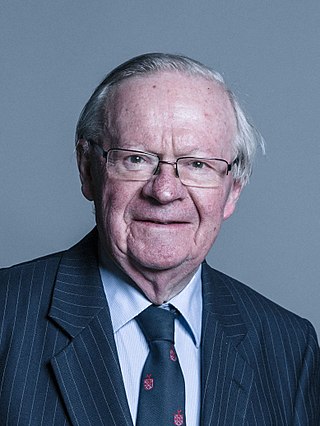
John Roddick Russell MacGregor, Baron MacGregor of Pulham Market,, is a politician from the United Kingdom. A member of the Conservative Party, he was the Member of Parliament (MP) for South Norfolk from 1974 to 2001. He served in the Cabinet as Chief Secretary to the Treasury (1985–87), Minister of Agriculture, Fisheries and Food (1987–89), Secretary of State for Education and Science (1989–90), Leader of the House of Commons and Lord President of the Council (1990–92), and Secretary of State for Transport (1992–94). He was made a life peer in 2001.

The House of Lords Act 1999 is an Act of the Parliament of the United Kingdom that reformed the House of Lords, one of the chambers of Parliament. The Act was given Royal Assent on 11 November 1999. For centuries, the House of Lords had included several hundred members who inherited their seats ; the Act removed such a right. However, as part of a compromise, the Act did permit ninety-two hereditary peers to remain in the House. Another ten were created life peers to enable them to remain in the House.

Baron Strathclyde is a title that has been created twice in British history, both times in the Peerage of the United Kingdom. It was first created on 15 January 1914 when the politician and judge Alexander Ure was made Baron Strathclyde, of Sandyford in Lanarkshire. This creation became extinct on his death in 1928.

Baron Raglan, of Raglan in the County of Monmouth, is a title in the Peerage of the United Kingdom. It was created on 20 October 1852 for the military commander Lord FitzRoy Somerset, chiefly remembered as commander of the British troops during the Crimean War.
The Salisbury Convention is a constitutional convention in the United Kingdom under which the House of Lords will not oppose the second or third reading of any government legislation promised in its election manifesto. The origins of the convention date back to the late nineteenth century, at which time the Conservatives held a majority in the House of Lords and, with the support of the third Marquess of Salisbury, developed the "Referendal Theory", which applied solely to Liberal legislation, under which the House of Lords could obstruct legislation until it had received majority approval at a general election. This was changed following the landslide Labour Party victory in the 1945 general election, which produced a Labour government seen as having a popular mandate for significant reform, while once again there was a Conservative majority in the House of Lords. The fifth Marquess of Salisbury announced that the Lords "would not seek to thwart the main lines of Labour's legislation provided it derived from the party's manifesto for the previous election". From this point, manifesto bills were only to be adjusted by the Lords; however, on non-manifesto bills, the Lords were able to act as they had before.

Robert Michael James Gascoyne-Cecil, 7th Marquess of Salisbury, Baron Gascoyne-Cecil,, is a British Conservative politician. From 1979 to 1987 he represented South Dorset in the House of Commons, and in the 1990s he was Leader of the House of Lords under his courtesy title of Viscount Cranborne. Lord Salisbury lives in one of England's largest historic houses, the 17th-century Hatfield House in Hertfordshire, and currently serves as Chancellor of the University of Hertfordshire.

James Edward Hubert Gascoyne-Cecil, 4th Marquess of Salisbury,, known as Viscount Cranborne from 1868 to 1903, was a British statesman.
In the United Kingdom, life peers are appointed members of the peerage whose titles cannot be inherited, in contrast to hereditary peers. Life peers are appointed by the monarch on the advice of the Prime Minister. With the exception of the Dukedom of Edinburgh awarded for life to Prince Edward in 2023, all life peerages conferred since 2009 have been created under the Life Peerages Act 1958 with the rank of baron and entitle their holders to sit and vote in the House of Lords, presuming they meet qualifications such as age and citizenship. The legitimate children of a life peer appointed under the Life Peerages Act 1958 are entitled to style themselves with the prefix "The Honourable", although they cannot inherit the peerage itself. Prior to 2009, life peers of baronial rank could also be so created under the Appellate Jurisdiction Act 1876 for senior judges.
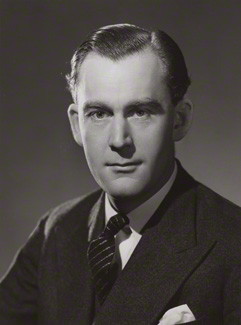
Sir Thomas Galloway Dunlop Galbraith, known as Tam Galbraith, was a Scottish Unionist politician.

Thomas Dunlop Galbraith, 1st Baron Strathclyde, PC, was a Scottish Unionist Party politician.
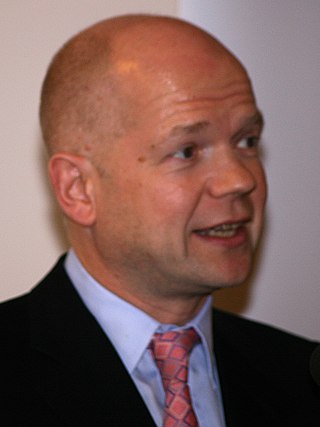
The Shadow Cabinet appointed by Conservative Party leader William Hague was the Official Opposition Shadow Cabinet from 1997 to 2001. Following his initial appointments in June 1997, Hague reshuffled the Shadow Cabinet five times before his resignation as leader following defeat in the 2001 general election.

David Garro Trefgarne, 2nd Baron Trefgarne,, is a British Conservative politician. He is currently the longest-serving member of the House of Lords.

Alastair John Lyndhurst Bruce, 5th Baron Aberdare,, is a British nobleman, and since 2009 a crossbench hereditary Lord Temporal.
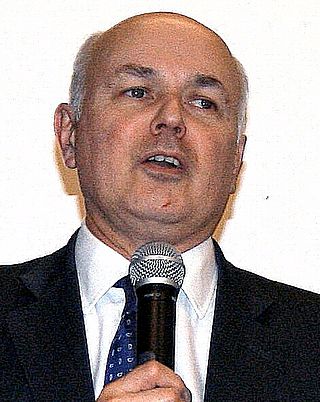
The UK Shadow Cabinet was appointed by Conservative Party leader Iain Duncan Smith. Following his initial appointments in September 2001 Smith managed three reshuffles before his resignation as leader in November 2003.
Donald Euan Palmer Howard, 4th Baron Strathcona and Mount Royal,, was a British Conservative politician.
John Polson Cameron Corbett, 4th Baron Rowallan, is a British hereditary peer. He is the son of Arthur Corbett, 3rd Baron Rowallan, and Eleanor Mary Boyle. He is usually known as Johnny Corbett or Johnny Rowallan.



